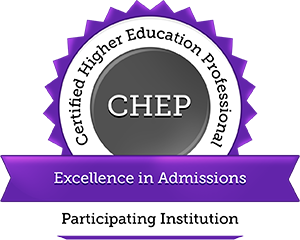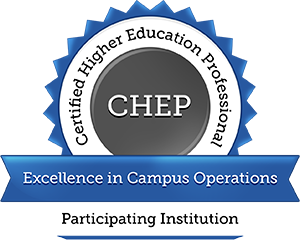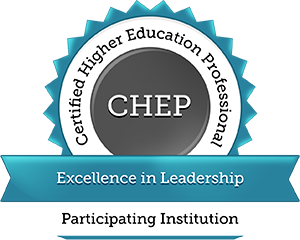General Studies
Bachelor of Science (BS)
Online Degree Program
The Bachelor of Science in General Studies online degree program gives students an opportunity to explore an array of courses to help improve themselves both professionally and personally. For this, students will examine history, theory, research, best practices, and factors impacting these fields. The program includes courses in the areas of business, psychology, criminal justice, marketing, and general education.
Designed For You
The California Coast University online Bachelor of Science in General Studies program was designed for complete flexibility for the student. All courses are self-paced and completed 100% online.
-
Low tuition with interest-free payment plans as low as $150/month.
-
Flexible programs designed to fit into your busy schedule. Self-paced study with no group projects, set meeting times, or exam dates.
-
The program is not structured in semesters, quarters, or terms. It is designed to allow students to begin their online studies at any time of the year.
-
CCU offers a tuition discount for Active Duty Military, Veterans, Law Enforcement, Firefighters, Government Employees, and CCU Graduates.
We also offer a 10% discount for Corporate Partner employees. For more information on how to become a Corporate Partner, see our Corporate Partnership Information Page.
*Employment verification is required. Offer good for students who enrolled after January 2024 and were offered discount at time of enrollment. Offer is not retroactive for students already enrolled. Discount and/or prices subject to change and/or cancellation at any time without notice. This offer cannot be combined with any other discount(s).
.png)
Upon successful completion of the program, students will be able to:
- Examine various theories, key concepts, and research relevant to the business course program content.
- Examine various theories, key concepts, and research relevant to the psychology course program content.
- Examine various theories, key concepts, and research relevant to the criminal justice course program content.
- Examine program content in relation to ethical reasoning, social responsibility, global citizenship, and civic engagement.
- Examine key concepts and theories related to program content - utilizing critical thinking and academic writing skills.
It was a great experience.Particularly to work at my own pace with a full time career.
Explore The Program
The Bachelor of Science in General Studies degree program consists of 42 total courses.
The required courses are comprised of:
14 Core Courses
>
14 General Ed Courses
>
14 Elective Courses
.
There are 126 total semester units in this program.
For the online Bachelor of Science in General Studies (B.S.) degree program, the following 14 courses must be fulfilled. Click on course title to expand and read more.
| ID | Course Name | Units | |
|---|---|---|---|
| BAM 105 | Introduction to Business | 3 | |
| BAM 225 | Information Management | 3 | |
| BAM 312 | Business Communications | 3 | |
| BAM 315 | Principles of Management | 3 | |
| BAM 350 | Project Management | 3 | |
| BAM 410 | Organizational Theory and Behavior | 3 | |
| BCJ 100 | Introduction to Criminal Justice | 3 | |
| BCJ 240 | Procedures in the Justice System | 3 | |
| BCJ 360 | Criminal Law | 3 | |
| HCA 200 | The United States Health Care System | 3 | |
| MKT 230 | Consumer Behavior | 3 | |
| PSY 220 | Developmental Psychology | 3 | |
| PSY 408 | Abnormal Psychology | 3 | |
| PSY 430 | Educational Psychology | 3 | |
For the online Bachelor of Science in General Studies (B.S.) degree program, the following 14 courses must be fulfilled. Click on course title to expand and read more.
| ID | Course Name | Units | |
|---|---|---|---|
| GED 101 | Introduction to Life Science (Natural Sciences) | 3 | |
| GED 108 | Environmental Science (Natural Sciences) | 3 | |
| GED 120 | Introduction to Humanities (Humanities/Fine Arts) | 3 | |
| GED 130 | Introduction to Civilization (Humanities/Fine Arts) | 3 | |
| GED 132 | United States Government (Basic Subjects) | 3 | |
| GED 150 | Mathematics (Basic Subjects) | 3 | |
| GED 155 | English (Basic Subjects) | 3 | |
| GED 210 | Introduction to Cultural Anthropology (Social Sciences) | 3 | |
| GED 215 | Psychology of Adjustment (Social Sciences) | 3 | |
| GED 216 | Introduction to Sociology (Social Sciences) | 3 | |
| GED 232 | Early U.S. History (Basic Subjects) | 3 | |
| GED 250 | World Religions (Humanities/Fine Arts) | 3 | |
| GED 345 | Intercultural Communication (Social Sciences) | 3 | |
| GED 375 | Ethics and Society (Humanities/Fine Arts) | 3 | |
For the online Bachelor of Science in General Studies (B.S.) degree program, you will select 14 courses to take from the list of courses below. Click on course title to expand and read more.
| ID | Course Name | Units | |
|---|---|---|---|
| BAM 223 | Principles of Economics | 3 | |
| BAM 306 | Principles of Marketing | 3 | |
| BAM 313 | Introduction to Financial Management | 3 | |
| BAM 317 | Business Law | 3 | |
| BAM 401 | International Business | 3 | |
| BAM 411 | Human Resource Management | 3 | |
| BAM 418 | Small Business Management | 3 | |
| BCJ 210 | Juvenile Justice | 3 | |
| BCJ 230 | Criminal Investigation | 3 | |
| BCJ 340 | Criminal Behavior | 3 | |
| BCJ 351 | Forensic Science | 3 | |
| BCJ 450 | Domestic Violence | 3 | |
| HCA 320 | Essentials of Managed Health Care | 3 | |
| HCA 340 | Cultural Diversity in Health and Illness | 3 | |
| HCA 420 | Medical Law and Ethics | 3 | |
| MKT 425 | Social Media Marketing | 3 | |
| PSY 116 | Psychology of Gender | 3 | |
| PSY 150 | Health Psychology | 3 | |
| PSY 280 | Marriage and Family | 3 | |
| PSY 380 | Personality Theories | 3 | |
Prerequisites to Admission:
The applicant should meet the following prerequisites in order to be admitted to the program: An applicant must be at least 18 years of age and have successfully obtained a high school diploma, GED, or its equivalent.
FAQ About Coursework
Required units may be satisfied in the following ways:
-
California Coast University has developed comprehensive Study Guides, for each course, that are designed to coordinate and sequence the learning materials within the required textbook. The following points will help to illustrate how the Study Guides are designed:
- Study Guides are based on specific college level textbooks, which may be obtained from local bookstores, the publisher, or the University's Rental Library.
- Each Study Guide is organized with a complete syllabus, along with instructional materials to guide the student chapter by chapter through the corresponding textbook.
- Each Study Guide contains an overview and summary of all textbook chapters, along with a listing of important keywords (with definitions), and self-tests (with answers) on key points.
- Study Guides include 4 unit exams equally spaced throughout the instructional materials, one writing assignment per unit, and the final examination.
- Examinations are designed to test the student on the information contained within the preceding chapters.
- All tests have no time limit and may be completed as open book tests.
-
California Coast University recognizes that not all learning occurs through a college or university. Therefore, it is possible to receive academic credit based on previously completed specialized training. The following guidelines are utilized when evaluating specialized training:
- Documented training such as those a student may have completed through their employer, company, organization, military training experiences, professional or personal licensure requirements or other documented training experiences may be eligible for academic credit.
- Eligibility for specialized training is assessed at the application stage of the enrollment process. All supporting documentation of prior training is reviewed for equivalent elective credit.
- Students have 45 days from the date of enrollment to submit documents for specialized training credit. If applicable, credits will be awarded and tuition will be adjusted accordingly.
- For specialized training documents received after the initial 45 days, there will be a re-evaluation fee of $75.00 charged. Any academic credit awarded will be applied to the student's program, but there will be no tuition adjustments made after the initial 45 days of enrollment.
- Specialized training credit can be utilized to meet elective course requirements only.
*Savings based on the ability to satisfy 10 elective courses using specialized training credit.
-
Transcripts of previously completed academic work are evaluated and credit may be transferred to meet existing coursework requirements. The following guidelines are utilized when accepting transfer credit for a bachelor's degree program:
- The University will accept transfer credit from applicable courses completed at colleges or universities accredited by an agency recognized by the U.S. Department of Education or foreign equivalent.
- Bachelor degree students may receive transfer credit for up to 93 semester units.
- To be eligible for undergraduate academic credit, transfer grades must be equivalent to a letter grade of C (2.0 GPA) or higher.
-
During the admissions process, all professional experience is reviewed to determine if an applicant has sufficient occupational experience to warrant completing a Challenge Examination in lieu of a Study Guide for a particular course. The following factors are considered:
- An applicant may be offered an opportunity to complete a Challenge Examination if the candidate's occupational expertise appears to be comparable to the objectives identified for a particular course.
- Successfully passing a Challenge Examination will demonstrate an acceptable level of competence for that course.
- If a student does not pass a Challenge Examination they are assigned a Study Guide for completion.
- The maximum amount of Challenge Examinations allowed for each program level are: Associate 4; Bachelor's 10; Master's 2; Doctorate 0; and Certificates 1.

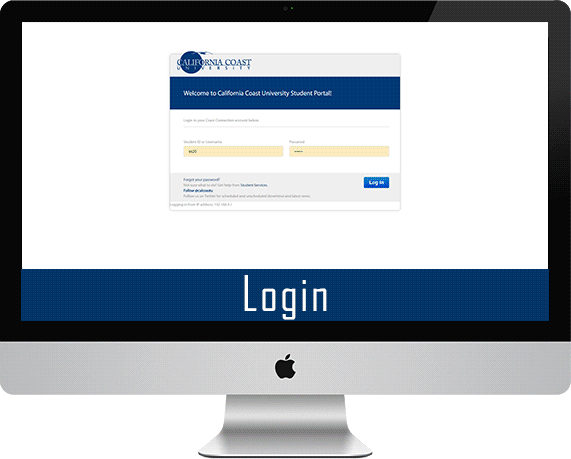



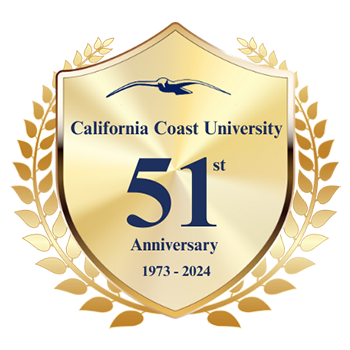




.jpg)



